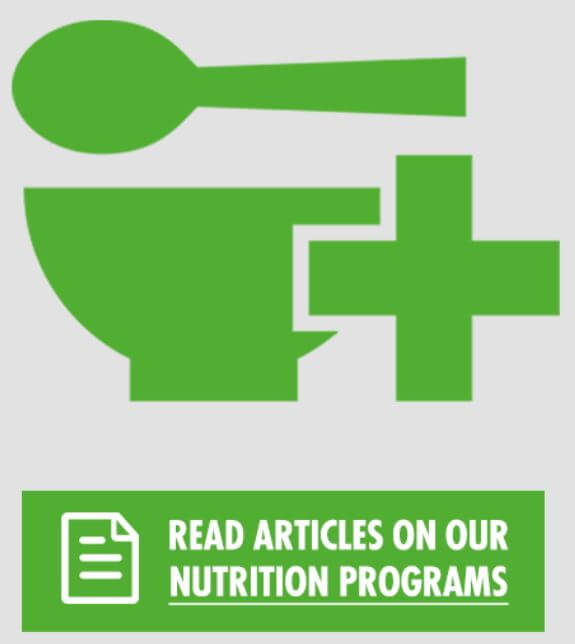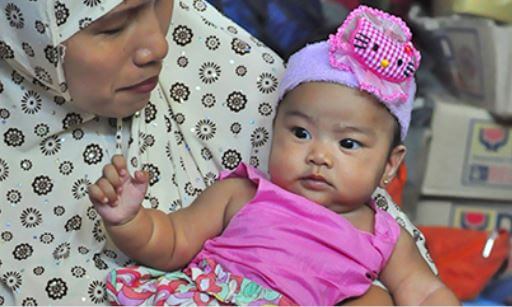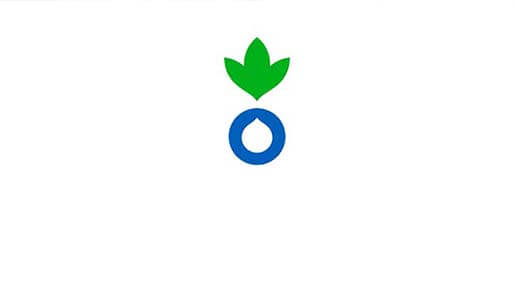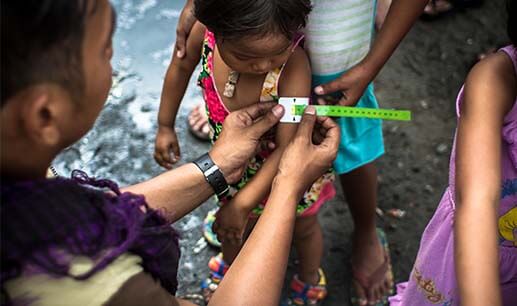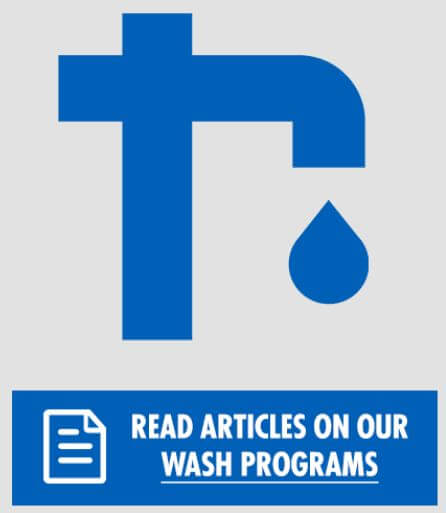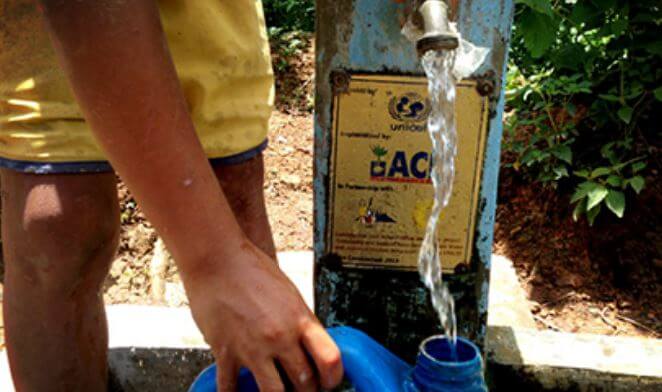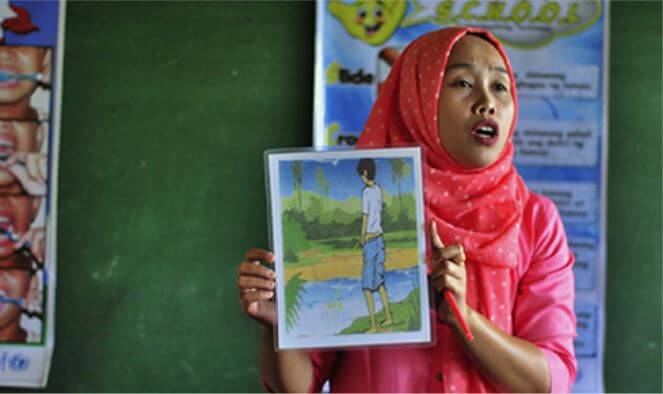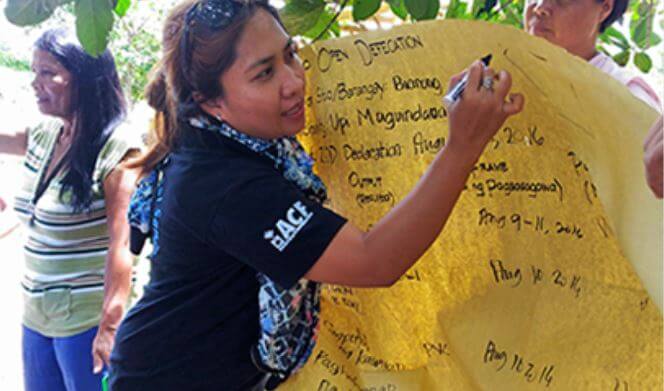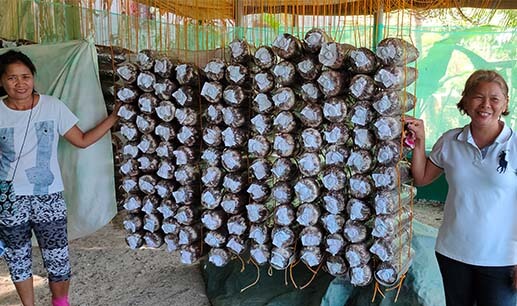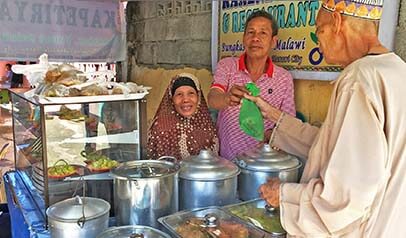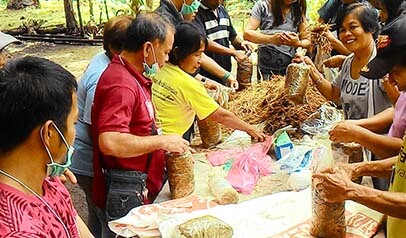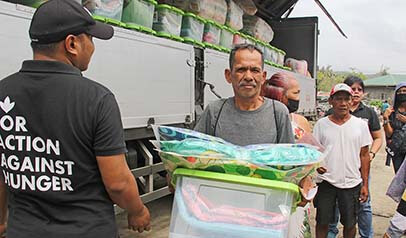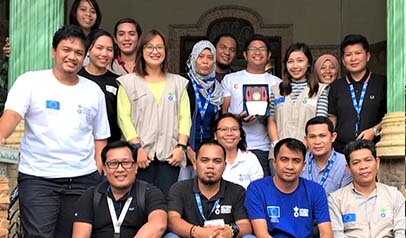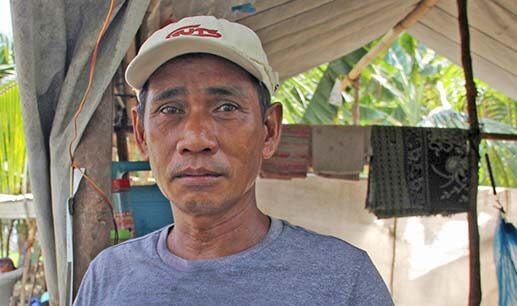NUTRITION & HEALTH
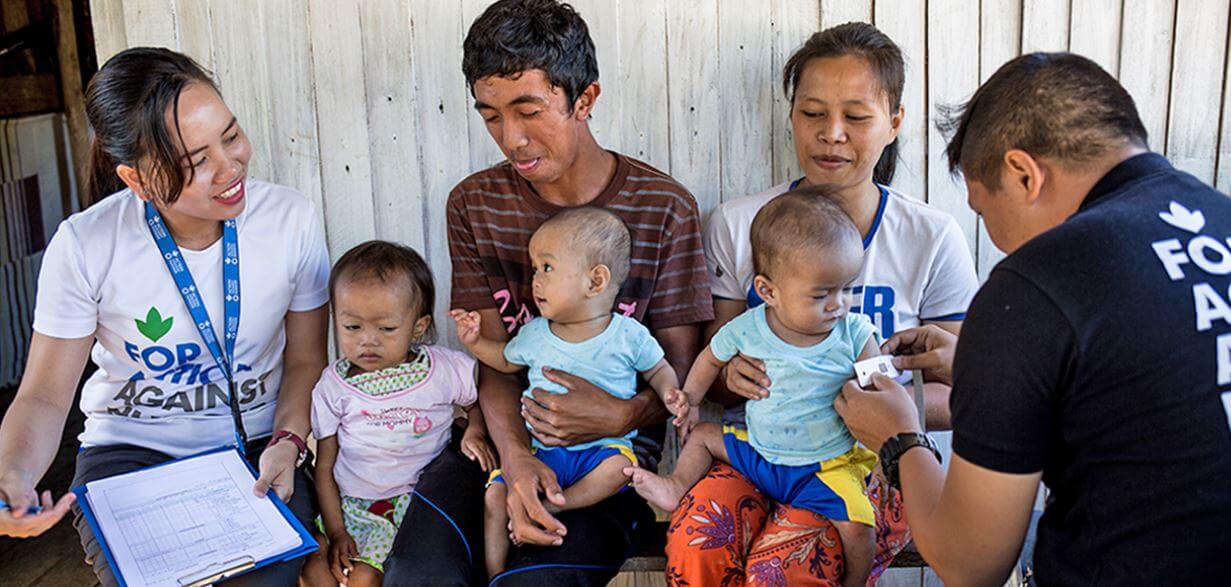
Today, undernutrition is the single greatest threat to child survival worldwide and the underlying cause of nearly half of all child deaths. Evidence proves that good nutrition in the first 1,000 days between pregnancy and a child’s second birthday, (the critical “window of opportunity”), builds a strong immune system, ensures healthy physical and Intel lectual development, and “supercharges” a child’s chances of survival.
Action Against Hunger’s expertise in preventing and treating undernutrition is internationally renowned, due to our 40 years of operational experience in parts of the world where hunger is most severe and entrenched. We have contributed to the development of revolutionary nutrition products and conducted field testing of treatment protocols that are now international best practice.
From isolated rural communities to overcrowded urban slums to refugee camps, Action Against Hunger works to prevent and treat undernutrition in over 45 countries around the world. We work in humanitarian emergencies and in more stable contexts to improve the health and survival of the most vulnerable children under the age of five, as well as pregnant women and nursing mothers.
In 2018, our nutrition, health, and care programs reached more than 8.7 million people in need around the world.
WHAT WE DO

Gather, Analyze, and Share Data on Undenutrition
To determine prevalence and the root causes of undernutrition in each local context, we analyze both indirect and direct factors and conduct rigorous assessments. Gathering, analyzing, and sharing this data is essential to guiding an effective, relevant response.
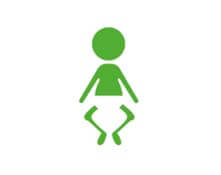
Treat Acute Undernutrition
We refer acutely undernourished children who show signs of complications for inpatient care. We provide local, accessible, easy-to-reach outpatient treatment for acutely undernourished children without medical complications through a highly effective approach known as “community management of acute malnutrition,” (also called CMAM).
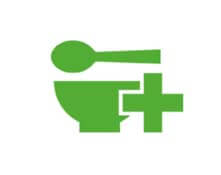
Prevent Undernutrition
We work to prevent chronic and acute undernutrition through an integrated approach that addresses both the direct and underlying causes. In emergencies, we work to ensure that vulnerable children under five, pregnant women, and nursing mothers have access to supplementary food to meet their nutritional needs and prevent them from becoming undernourished.
We also work to educate and support mothers about the importance of breastfeeding for the first six months, and work to improve care and feeding practices to ensure children from six months of age to five years receive adequate micronutrients and protein for healthy development. Our programs also provide pregnant women and new mothers with peer support groups, facilitated by heath workers, to encourage and promote good nutrition, hygiene, sanitation, and care practices for mothers, infants, and young children.
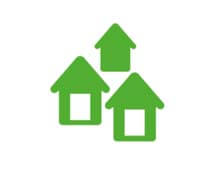
Strengthen Local Capacity and Build Resilience
We train local health care workers and partners to screen and treat undernutrition, and we provide technical expertise and support to strengthen local health systems. In severe humanitarian emergencies, we sometimes directly deliver emergency nutrition programs to provide lifesaving treatment to acutely undernourished children, but our aim is to transfer our knowledge, work in partnership with communities, and strengthen what is already working via local health care services to ensure sustainable impact. We also work in more stable contexts, and after crises subside, to build communities’ resilience to hunger and mitigate the causes and consequences of undernutrition.
WATER, SANITATION & HYGIENE
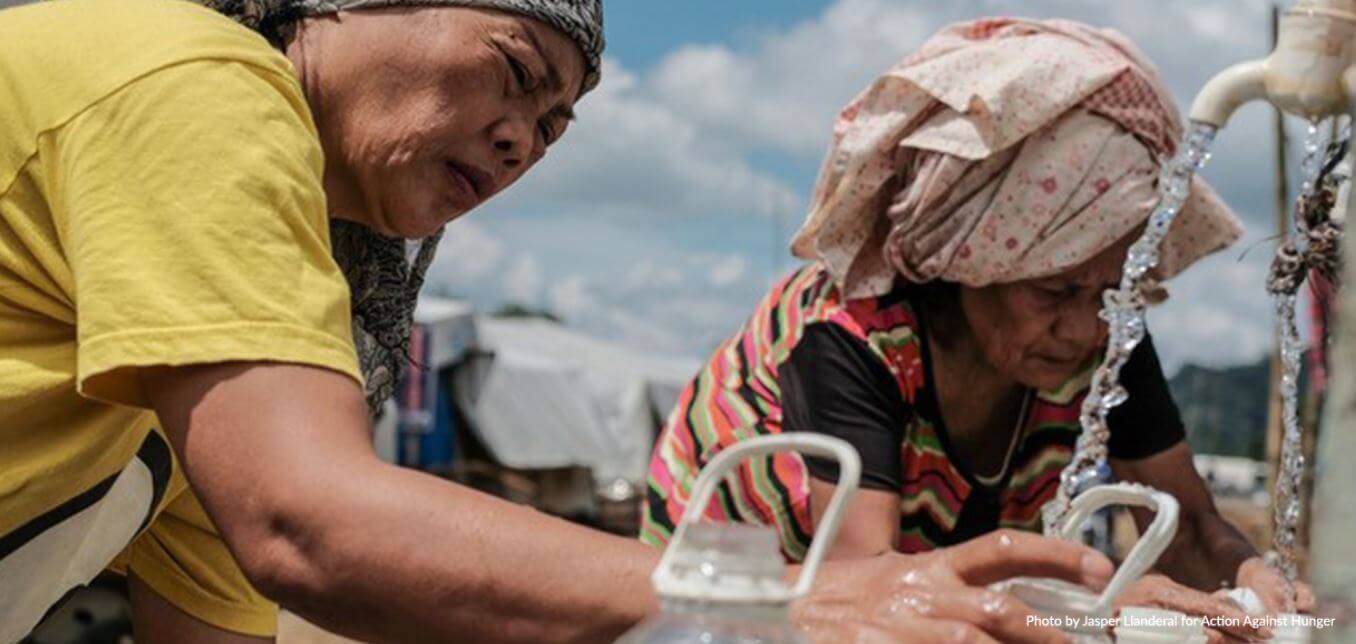
Every day 1,000 children die from illnesses like diarrhea, dysentery, and cholera caused by dirty water and unhygienic living conditions. We can’t fight malnutrition without tackling the waterborne diseases that contribute to it. As part of our integrated approach to fighting hunger, we bring safe water, sanitation, and hygiene services to communities in need all over the world.
WATER FACTS
• Nearly two billion people worldwide drink unsafe water.
• One billion people lack access to improved sanitation.
• More than 5% of all child deaths can be prevented with safe water and sanitation.
• But there has been tremendous progress. Between 1990 and 2012, 2.3 billion people gained access to an improved drinking water source
In 2017, Action Against Hunger’s Water, Sanitation & Hygiene programs reached 8.9 million people around the world.
WHAT WE DO
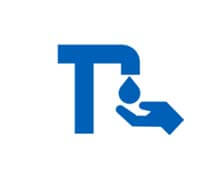
Provide Access to Safe Water
During emergencies, we truck water into affected areas and install storage tanks and reservoirs. Where water is scarce or unsafe, we drill and decontaminate wells, install hand-pumps, protect natural springs, tap aquifers, rehabilitate damaged infrastructure, and pipe water into hard-to-reach villages and health centers.

Promote Sanitation & Hygiene
To prevent outbreaks of disease during a crisis, our teams distribute hygiene kits and build latrines and hand-washing stations. In communities at risk, we construct water filters made from basic materials and teach healthy practices like hand-washing, cooking with clean utensils, and drawing water from protected sources.

Ensure Lasting Change
Ensure Lasting Change Our commitment to community participation ensures long-term capacity: we train community-based water committees to manage their water and sanitation infrastructure themselves, and organize village health teams to model good sanitation and hygiene practices for their communities long after we leave an area.
FOOD SECURITY & LIVELIHOOD
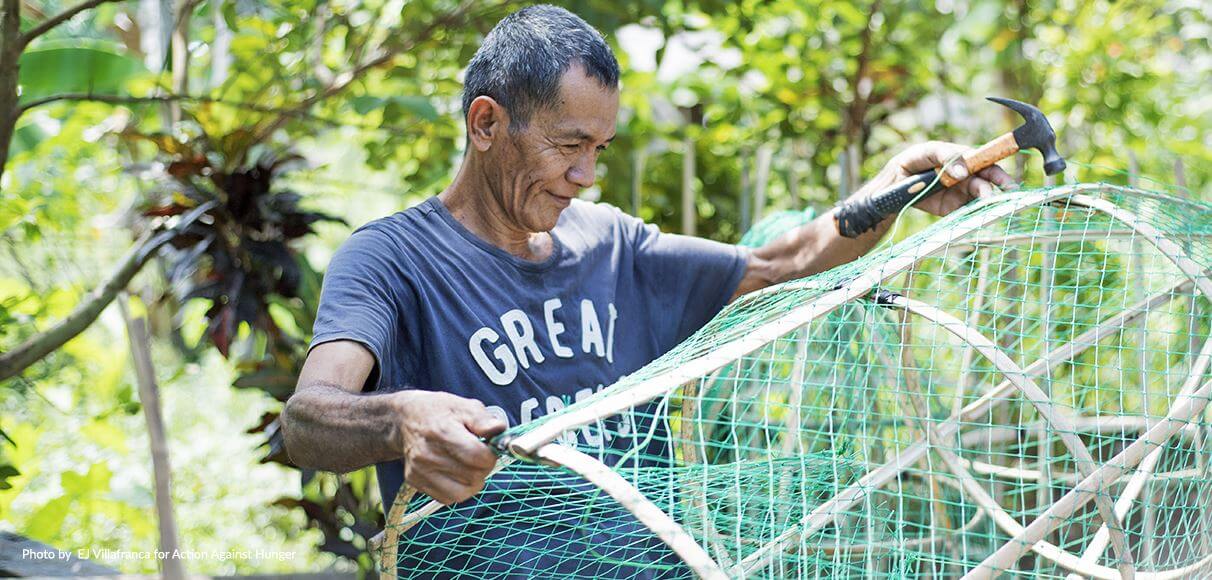
Action Against Hunger’s food security and livelihoods programs tackle the root causes of hunger by addressing problems of production, access, and income. Encompassing a wide array of activities customized to meet a community’s specific needs, our programs are designed to bolster agricultural production, jumpstart local market activity, support micro-enterprise initiatives, and otherwise enhance a vulnerable community’s access to sustainable sources of food and income.
FOOD SECURITY AND LIVELIHOOD FACTS
• Micronutrient deficiency affects 2 billion people – over 25% of the global population -making them susceptible to long-term, irreversible health effects, as well as having damaging socio-economic consequences.
• If women farmers had the same access to productive resources as men, it could reduce the number of hungry people in the world by up to 17% due to increased crop yields.
• Although the global target of reducing poverty (the number of people living on less than $1.25 per day) by half from the 1990 level of 36% to 18% was achieved in 2010, the number of people living in extreme poverty in sub-Saharan Africa increased from 290 million to 414 million in the same period.
In 2018, we improved access to food and income for 2.7 million people around the world. We also helped 140,603 to prepare for and reduce the risk of disaster.
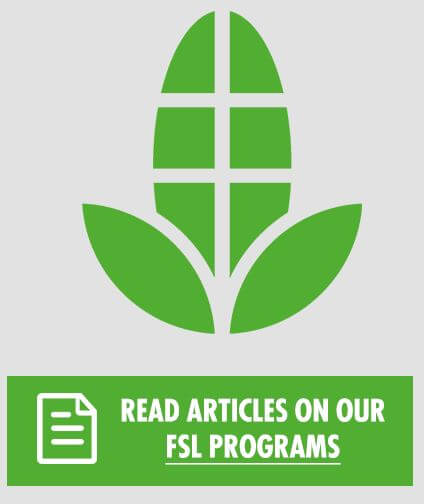
WHAT WE DO
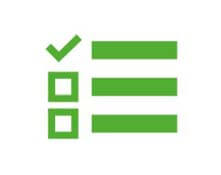
Evaluate Local Needs
To determine what’s causing hunger in a given area, Action Against Hunger carries out comprehensive evaluations by collecting and analyzing key data on local assets, resources, and livelihoods strategies. Our teams meet directly with community members to better understand local conditions and create a collaborative plan of action.

Respond to Emergencies
When disasters destroy infrastructure and food supplies, when violence forces thousands to flee, or when drought disrupts food production, Action Against Hunger responds with distributions of food, cash, and other items to prevent hunger in the short-term and ensure that crops can be replanted and livestock restocked in the future.
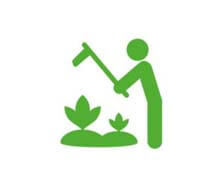
Provide Long-Term Solutions
Designed in collaboration with local populations, our strategies are context-specific: micro-grant support for families recovering from conflict, seeds and tools for agricultural recovery, livestock and veterinary services where needed, small business assistance, and other programs that help families regain self-sufficiency.
EMERGENCY RESPONSE
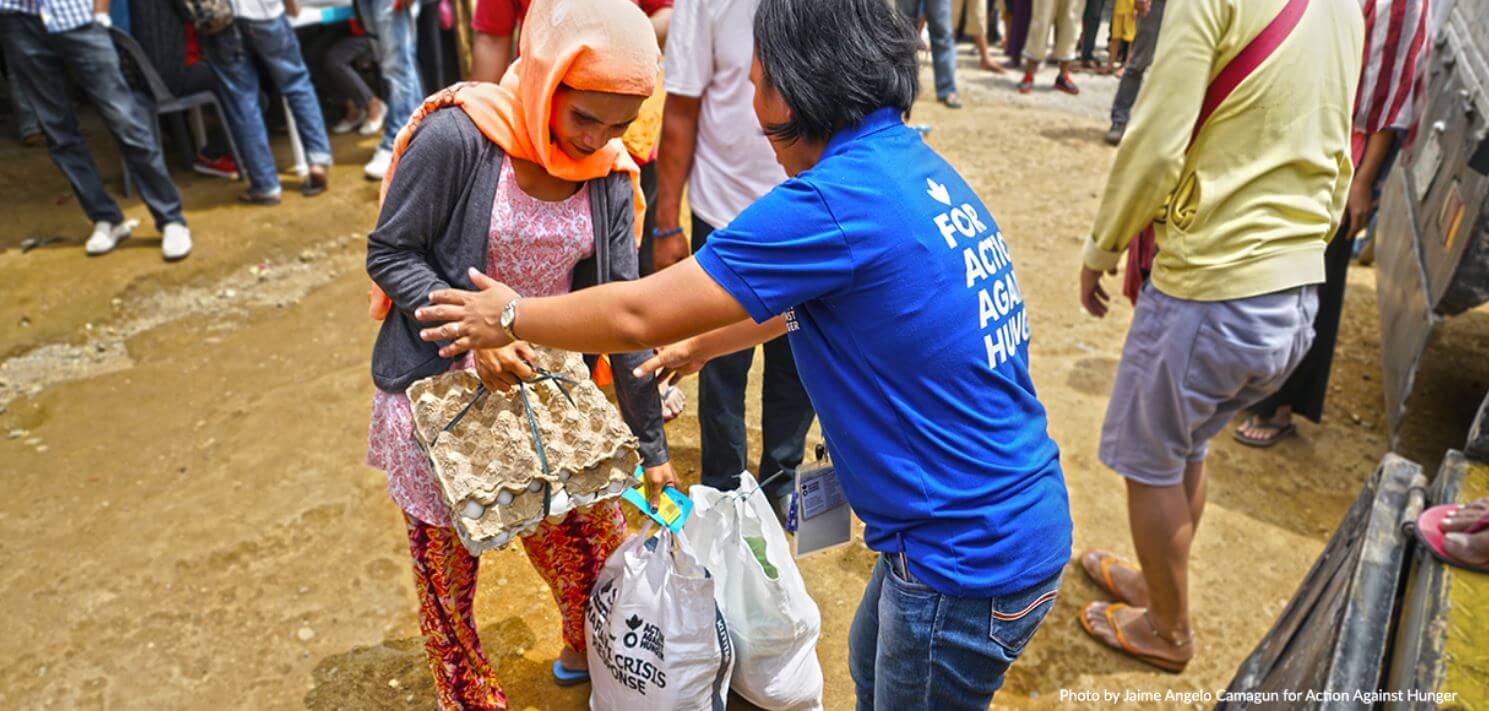
Our rapid response capabilities reflect our commitment to emergency preparedness, and our global reach places us in forefront of disaster response.
With emergency teams on call 24 hours a day, and pre-positioned stocks of essential supplies ready for deployment, our internationally renowned rapid response capabilities ensure that life-saving assistance can be delivered anywhere in the world when needs arise.
In the past year, Action Against Hunger has responded to every major humanitarian crisis in the world—including Bangladesh, Nigeria, South Sudan, Yemen, Syria, Iraq, and Central African Republic.
Our teams around the world delivered rapid, effective,lifesaving assistance—and we will stay for the long-haul to create sustainable solutions for whole communities.
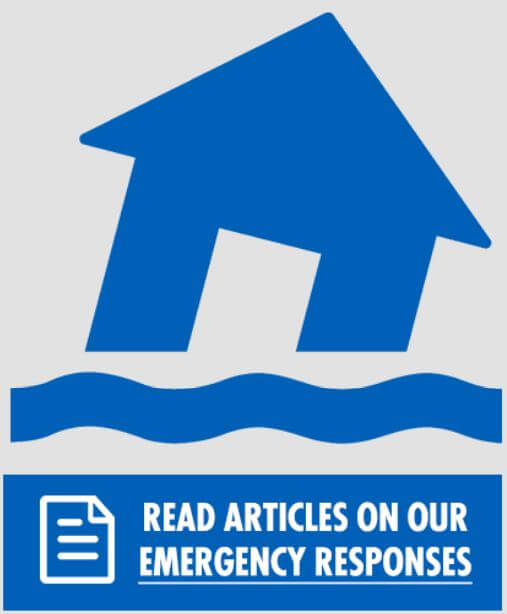
WHAT WE DO
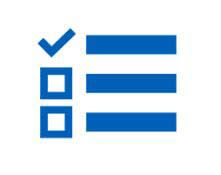
Evaluate Emergency Needs
After a disaster strikes, our emergency teams evaluate the needs of affected populations. These surveys help us understand what kind of intervention is needed most: nutrition, food security and livelihoods, or water, sanitation and hygiene services.
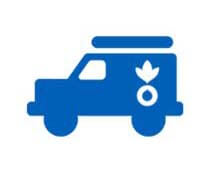
Provide Emergency Aid
We team up with local government agencies, NGO partners, and community leaders to bring efficient, effective relief to communities hit by disaster. Our rapid response capabilities and teams on the ground allow us to immediately deliver lifesaving supplies and care.
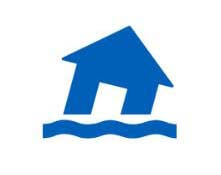
Prevent and Manage Risk
In communities that are prone to disaster, we work to manage their risk of and strengthen their resilience to future shocks. We help bolster local economies, improve infrastructure, and plan for long-term development.
SUBSCRIBE TO OUR NEWSLETTER

WHERE WE ARE
MAKATI OFFICE
4F Gloria Bldg., 109 Aguirre St.,
Legaspi Village, Makati City,
Metro Manila, Philippines, 1229
+63 (02) 884 01808
+63 (02) 865 93598
[email protected]
COTABATO FIELD OFFICE
3rd Street, Don E Sero, RH 5,
Cotabato City, Philippines, 9600
(064) 552-2867
MAKATI OFFICE
4F Gloria Bldg., 109 Aguirre St.,
Legaspi Village, Makati City,
Metro Manila, Philippines, 1229
+63 (02) 884 01808
+63 (02) 865 93598
[email protected]
COTABATO FIELD OFFICE
3rd Street, Don E Sero, RH 5,
Cotabato City, Philippines, 9600
(064) 552-2867
WHO WE ARE
About Us
Philippine Mission
International Headquarters
Charter of Principles
Publications
About Us
Philippine Mission
International Headquarters
Charter of Principles
Publications
Action Against Hunger Foundation Philippines Inc. is a registered non-stock, non-profit organization in the Philippines with the Securities and Exchange Commission with Company Reg No. CN201917604. For complaints, send email to: [email protected] or SMS: +639985964005



